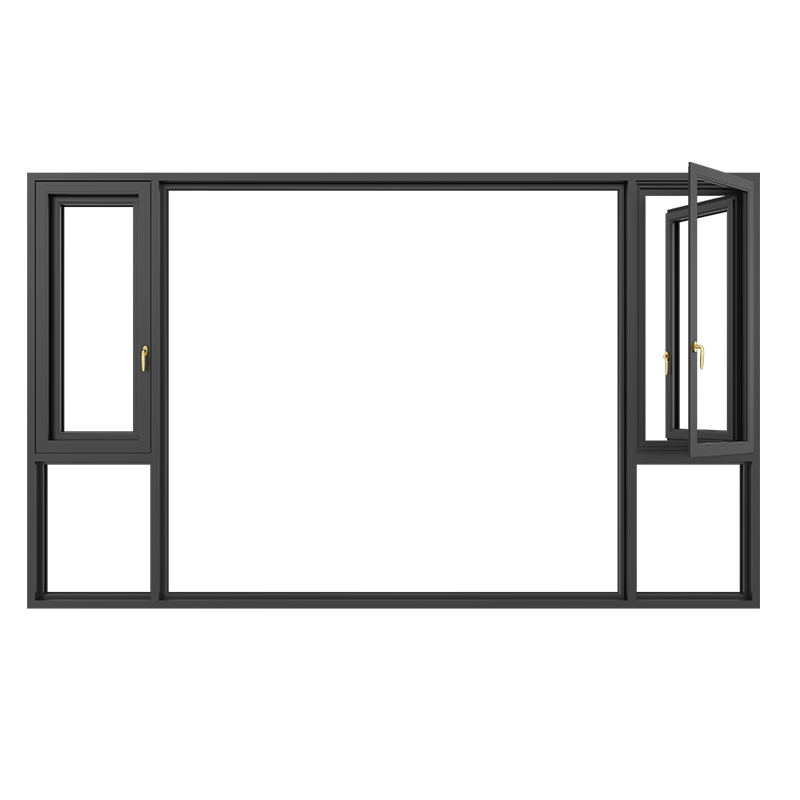Choosing the Perfect Aluminium Windows: A Comprehensive Guide from Material to Functionality
When choosing Aluminium Windows for your project, there are some things that you need to put into consideration in order to make sure that they fit well with both your aesthetics and functional needs. In this guide we outline major considerations such as material quality, window types, sound and thermal insulation performance, glass types and security features. This is specifically meant for those who want to get value out of their money.
Material Quality
1.Aluminium Alloy
The quality of aluminium alloy used on window frames is important. High grade aluminium alloys provide better durability, corrosion resistance and structural integrity. Seek windows made of 6063-T5 or 6063-T6 aluminum which are popular because of their good strength and corrosion resistance.

2.Surface Treatment
It is necessary to think about the surface treatment on the aluminum frames. Anodizing, powder coating or PVDF (polyvinylidene fluoride) coatings can enhance the durability as well as aesthetic appeal of the windows. These additional measures protect against corrosion, UV radiation, wear and tear thus extending the life span of these windows.
3.Window Types
Casement Windows
Casement windows open outwards since they are hinged at a side allowing for great ventilation and unobstructed views. They are best suited where air flow control matters such as in kitchens or bathrooms.
Sliding windows move horizontally along a track and would be ideal when outward opening might not be practical given space constraints. They offer ease of operation hence used in living rooms and bedrooms.
5.Tilt & Turn Windows
Tilt & turn windows have two functionalities; they can tilt inward just like a casement window does for ventilation or open up like casement window does too; therefore they can be said to be versatile products suitable for different rooms which makes them more secure than other types.
6.Awning Windows
Awning windows are hinged at the top side and open outwards to allow for ventilation even when there is light rain. They are used in combination with other types of windows for aesthetic purposes and functionality.
Sound and Thermal Insulation
1. Thermal Break Technology
A thermal break involves inserting a non-conductive material between the inside and outside of the window frame to prevent heat transfer. This has a major effect on enhancing the thermal insulation of these windows which thus makes them more energy efficient hence suitable for use in extreme climates.
2.Double or Triple Glazing
Double or triple glazing improves both sound and thermal insulation capabilities. Thus, it consists of multiple layers of glass with gas filled spaces that act as insulators against heat loss as well as noise therefore making indoor comfort better while increasing energy efficiency.
Glass Types
1.Low-E Glass
Low-emissivity (Low-E) glass has an infrared reflecting coating that maintains warmth inside rooms during winter while keeping it cool during summer seasons. This means that it helps regulate room temperatures while minimizing heating costs.
2.Tempered Glass
To make it stronger, tempered glass is heated whereas its fragments have a reduced sharpness after breaking into smaller pieces instead of shards making it safer for windows in areas susceptible to impact.
3.Laminated Glass
Laminated glass contains two or more layers held together by an interlayer such that even if broken they remain intact thereby providing extra security hence used mostly in high traffic or other risky zones due to their sound proofing properties too.
Safety Features
1.Multi-point Locking Systems
Multi-point locking ensures increased safety by allowing you to lock windows at different points on the frame so as to discourage any attempt by intruders to force them open.
2. Security for kids
For homes with young children, consider windows with child safety locks to prevent accidental falls. These locks allow windows to open slightly for ventilation while restricting full opening.
3. Hurricane Proof Glass
In areas prone to severe weather or security concerns, impact-resistant glass can provide additional protection. This type of glass is designed to withstand high levels of impact, making it difficult to break.